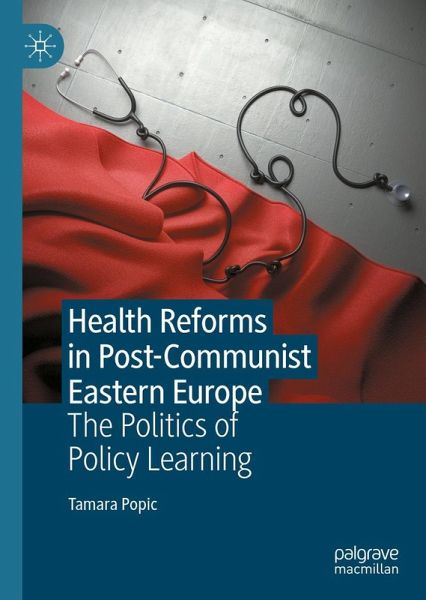
Health Reforms in Post-Communist Eastern Europe
The Politics of Policy Learning
Versandkostenfrei!
Versandfertig in 6-10 Tagen
91,99 €
inkl. MwSt.
Weitere Ausgaben:

PAYBACK Punkte
46 °P sammeln!
This book provides the first in-depth study of healthcare reforms in post-communist Eastern Europe. Combining insights from comparative politics and public policy analysis, it examines health reforms in Slovenia, the Czech Republic, and Poland between 1989 and 2019. The book argues that the post-communist transformation of healthcare policy has entailed a process of policy learning, and that the countries' reform pathways were shaped by a series of initiatives aimed at applying market-oriented policy ideas in healthcare. The success of these initiatives has been influenced by three factors: po...
This book provides the first in-depth study of healthcare reforms in post-communist Eastern Europe. Combining insights from comparative politics and public policy analysis, it examines health reforms in Slovenia, the Czech Republic, and Poland between 1989 and 2019. The book argues that the post-communist transformation of healthcare policy has entailed a process of policy learning, and that the countries' reform pathways were shaped by a series of initiatives aimed at applying market-oriented policy ideas in healthcare. The success of these initiatives has been influenced by three factors: policy legacies, political competition, and institutional configurations. The book offers a novel comparison of health reform in the region and policy changes more generally. It will appeal to scholars and students of public policy, health policy, and European politics.














